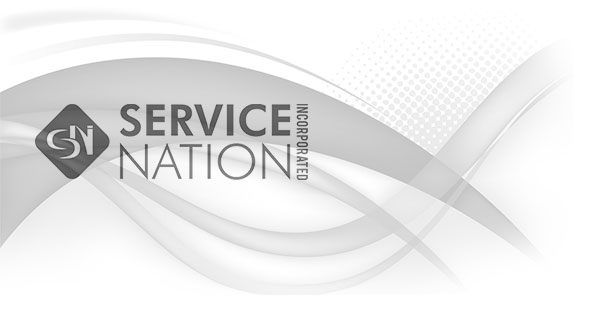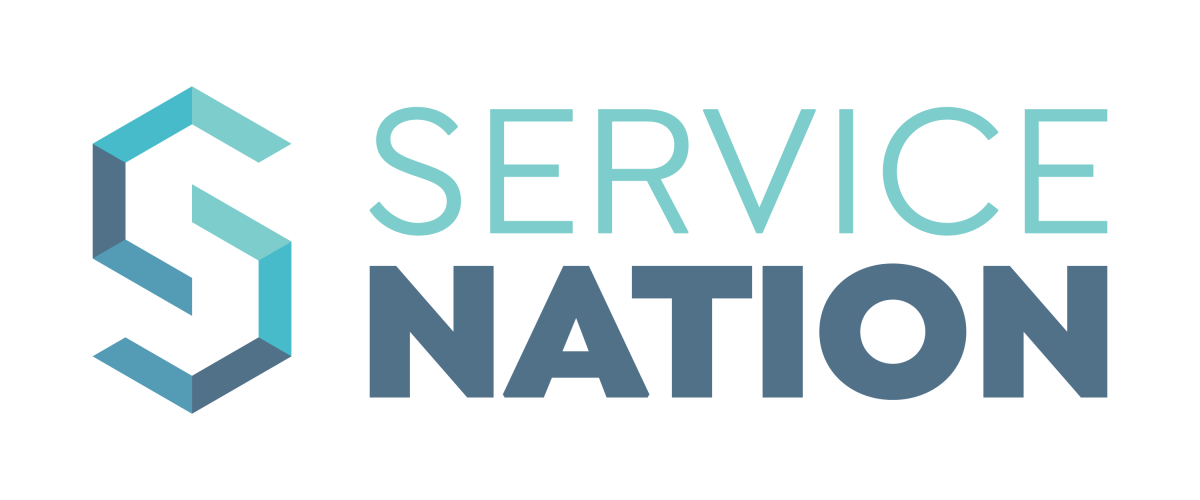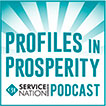Glen Wojcik: Well, I was fortunate to work with some very good contractors along the way, some good mechanical contractors. The last contractor I worked for was a national contractor called Johnson Controls. It was a very good experience, very good contractor, but they were shifting their direction from a lot of installation and a lot of services. They were kind of narrowing it down at that point, and that was in 1999/98. At the end of it, we actually started in 1999. So to make a long story short, I ended up leaving there and starting on my own in December of 1999. And we kind of mimic that process for us. We got a lot of schools, did a lot of service work at public schools and hospitals, that’s where Johnson Controls had done a lot of work. And it kind of grew from there. We did that for the first, I’m going to say 18 years. We did pretty well, but then we joined Service Nation Alliance growing rapidly.
David Heimer: Turn more of your focus to residential service then?
Glen Wojcik: We did, we were only industrial commercial service for the first, essentially 18 years of our existence, which did work, but once I had gone to a couple of Success Days over the years, probably for a couple of years before we actually joined. And it kept intriguing me and doing some more research. Then when we joined in March of 2019, we really kind of started turning the business plan around to the residential service and replacement. And we probably, at this point, after a little over two years, we probably do 70% residential and probably about 30 we’re pushing a little further; that will probably be at, you know, 20% commercial and 80% residential.
David Heimer: Tell me a little bit about the company now, how many people are on your team?
Glen Wojcik: We had five, six with an apprentice if I want to call that or intern from a trade school. And then we acquired a company in September and they were essentially the same size. They had five mechanics and they had one person as an intern from a trade school. So at this point, we have lost a couple of people in that transition. We are at 10 people and one of them is an intern from a trade school.
David Heimer: All right, so let’s talk about the acquisition – happened last year in September, right?
Glen Wojcik: It actually started the previous year in October.
David Heimer: So the acquisition closed in 2020, but you actually started the whole process in 2019?
Glen Wojcik: Yeah, I think that the process started with a conversation from a salesman that I knew this company, and we were fortunate enough that he was selling. And after being involved with Service Nation Alliance, it was always in the back of my mind if the opportunity arose, if I saw something that was interesting. So I kind of jumped on it if I want to call it that, and called the owner and had some dialogue and then we met up. Unfortunately, I think COVID kind of slowed down a little bit, probably would have been a little bit quicker, but there were some other hurdles.
David Heimer: So it took almost a year, but COVID intervened in it. What about the process? I mean, was he actually looking to sell or was it just a good opportunity for him or what was the situation with his company?
Glen Wojcik: He was looking to sell.
David Heimer: Okay.
Glen Wojcik: He was looking to sell it. He hadn’t, I guess, formally put it on the market if I want to call it that. But he was talking about it and he was in his early sixties and he had been doing it for 25 years and wanted to sell.
David Heimer: How does the process go? Was it smooth? Was it rocky? How did you guys come up with a figure and decide what the company was worth and all that?
Glen Wojcik: He had a number in his mind when we met the first time that he had sent me some financials and they were doing about $2 million a year. So I had some preconceived notions through my experience with Service Nation Alliance about what I would think he would be asking, and I had some other questions. But once we met and he had had a number, it was essentially lower than what my assumption would be, so it intrigued me even more. And we just started talking to dialogue about how this would happen and getting some more financials. And we basically, again, did some more research, got some stuff from his accountant and made sure, and I brought it up actually in my advisory board meeting. I had the financials and that was a topic of discussion which was very unique for us because it’s not that often that you get to bring up a subject like that with 12 or 14 of your peers doing the same work all around the country and actually in Canada. And for their inquiry about what they’ve done and how they’ve done it and what their thoughts were, and then we kind of felt what our final outcome was.
David Heimer: Yeah, valuable insight from that group and useful for them as well to hear about you doing it. Yeah, great idea to talk it over with them. It sounds like the financial part of this went pretty smoothly. Then after the acquisition, did he stay on with you for a while? Or what was the situation with the owner?
Glen Wojcik: So, he did, he stayed with us until the beginning of the year. We were hoping maybe a little bit longer. We were still getting things worked out, but he is still in contact. I actually just spoke to him before I’ve been on this call, but he’s not there at all daily. After the first of the year, he essentially is retired, he’s still open for questions from us. And if we have some things that were lingering from the past, he’s fine with the answering, so that aspect of it worked pretty well. The one thing I think that I probably underrated, I guess, if I want to call it that was, I thought it would be my own perspective that it would be an easier transition with the people or the men.
So one of the things, their office staff was his wife and himself, which both of them retired, so we had office staff here that we’re able to be utilized. But the mechanics themselves were a mix of gentlemen that had been with him. One of them for the whole duration since he has been in business 25 plus years, and some other ones that had been working for 20 plus years. And I think those were the ones that I thought would be relatively easy to switch over to our processes and procedures, and that wasn’t the case. And I guess in hindsight now, I probably should have realized that they were shocked that, I don’t know if I want to call them a typical small plumbing shop; they didn’t even write invoices. They would come in, the owner would hand them a slip. They would go out, they would do the work. They would come back. You would hand them another slip, they would go out, do the work, come back to the shop, no matter how far it was, that’s the process that worked for them, and that’s what they did.
To us, that was odd because we had been doing process and procedure in Service Nation Alliance for the last couple of years and it just worked. So, it was kind of a new learning curve to try to talk to somebody who’s been doing something for 25 years. They’ve been something totally different to talk about, even writing an invoice, to even collecting money, and then inevitably to talk about going onto an iPad and start writing pricing. So I guess, because it had been working so well for us, I just assumed they would just jump on and take care of it. But we’re still actually working through some of that. We had some of the older guys, which they told us on the AB meetings, they would probably be leaving because it was too much change for them to handle and that was the case.
We had three of the older gentlemen that have left to go work for somebody else. We have put on some younger guys and are moving forward with that. But it was a little surprising to me; I thought that they would be able to adapt quicker. I was told that wasn’t the case, and I guess in my mind I thought I could make that different. But it was literally what we had talked about with our consultants, that’s really what would happen, pretty much has happened. In six months, I think we’ve come a long way. We’ve got all of them on tablets, all of them collecting money and all of them on flat-rate pricing, still working on it, you know, on a weekly basis to get everybody better at it. It’s been a pretty quick turnaround, I think in hindsight for six months, but I was thinking to myself it would be a bit quicker.
David Heimer: Yeah, we always think those things are going to go faster and easier than they do, but you know, it’s an interesting transition. I really hadn’t given much thought until you talked about it. But these guys that were driving into the office getting a slip, they didn’t have to collect any money. And now they’re getting dispatched from the van probably, got to know how to work the tablet, got to collect the signature from the homeowner, and got to collect a credit card or payment from the homeowner as well. It is a little bit different for them, isn’t it?
Glen Wojcik: It was, it was a culture shock for them. And I do understand a little bit, but I think that we got kind of comfortable in doing it that way. And that was the norm for us, was totally left field for them to get on board. The younger guys were excited about it and pretty quickly got on board. They were pretty savvy already with the electronics and notion. They were excited for the new change. Again, it was the people who had been doing it for a while who weren’t that excited about the changes and weren’t that excited about having to do any extra steps from what they had been doing before.
David Heimer: You know you’re trying to move on from the 1970s, 1980s to the current day in only six months. I mean, I think you did pretty well.
Glen Wojcik: I can say it, it has worked very well. We had a few people that have left, but we kind of went into it knowing that, and we kind of went into it knowing that this year would be kind of maybe taking a couple of steps backwards with them so we could move forward again the following year. And I think that’s really where it’s kind of falling to this day.
David Heimer: If I remember right, this kind of opened up new territory for you guys in some ways, didn’t it?
Glen Wojcik: It did, we’re fortunate that if you were to look at the State of Massachusetts, there’s a large reservoir, right smack dab in the middle of it that serves Metro Boston’s drinking water. We have always been on the Eastern border of that reservoir. The reservoir kind of being a roadblock, kind of hard to get around, either on the Northern side or the south side of it. We had met occasionally. He had been on the Western side of this reservoir, which is about 25 plus miles long. So we had met and seen some of his work. They did pretty much the same type of work. We did a lot of radiant type of work, a lot of high-efficiency boilers, a lot of higher-end bathroom type stuff. But it opened up the whole Quabbin area if I want to call it, if you’re in the state of Massachusetts. So we encompass the whole reservoir now from the Eastern border, the Western border, the Northern and Southern borders. It grew us literally twice as large as we were before the acquisition.
David Heimer: So looking back on this experience, I mean, you’re not all the way through it yet. Is there anything you would do differently?
Glen Wojcik: I think I would be a little more cautious or be a little more prepared if I knew that I was going to acquire another company that had worked in the same manner that this company has. I would expect it to be a little lengthier and expect some people to leave where I would maybe was a little naive thinking that I could get it done quicker and keep everybody retained, it’s not the way that it normally works.
David Heimer: I think I would have thought the same thing you thought though. I mean, you think about it, it seems like it’s a massive improvement and you sort of assumed that everybody would get on board with that. But in retrospect, I understand, it makes sense that it was awkward for them.
Glen Wojcik: And I think for us, I think it’s opened our eyes to say, you know, we really are aware of it and we want to be able to see if there’s other companies that are in our area. I think in every area, there’s always a smaller company that’s doing the work and they’re doing a decent job that at some point, those people are going to retire and whether they’ve planned for that or not. But there’s always room to move into new territory and make that acquisition. I think that once I’ve done one now that I am always looking and listening to potentially have it happen with them.
David Heimer: Good idea, well, I look forward to hearing about your next acquisition then.
Glen Wojcik: And I will share that I would have never had that – I had the thought brush a little bit, but really didn’t have an avenue to go down to try to think about how that would happen, or I would bounce that off, who I might make sure that I’m actually on a path or trying to do it the right way. So, I will give kudos to Service Nation Alliance for allowing those interactions, those pathways that mentoring to be able to allow that to happen.
David Heimer: Thank you for saying that. I’m glad it worked out well for you guys too. It’s a great story. Well, Glenn Wojcik, I appreciate this time with you today. Thank you so much for doing this with us. A really interesting story, I know a lot of people are going to get good value from this, so I appreciate it.
Glen Wojcik: Thank you very much.
Outro: We’re always looking for good ideas and interviews for our podcasts. If you have an idea or maybe you think you should be interviewed, just shoot an email to profilesinprosperity@serviceroundtable.com. That’s profilesinprosperity@serviceroundtable.com. If you think what we’re doing has any value, it would be very helpful if you give us a great rating on iTunes. Thanks for your support. Hope to see you again soon. Bye.





 (877) 807-0869
(877) 807-0869 Member Login
Member Login

